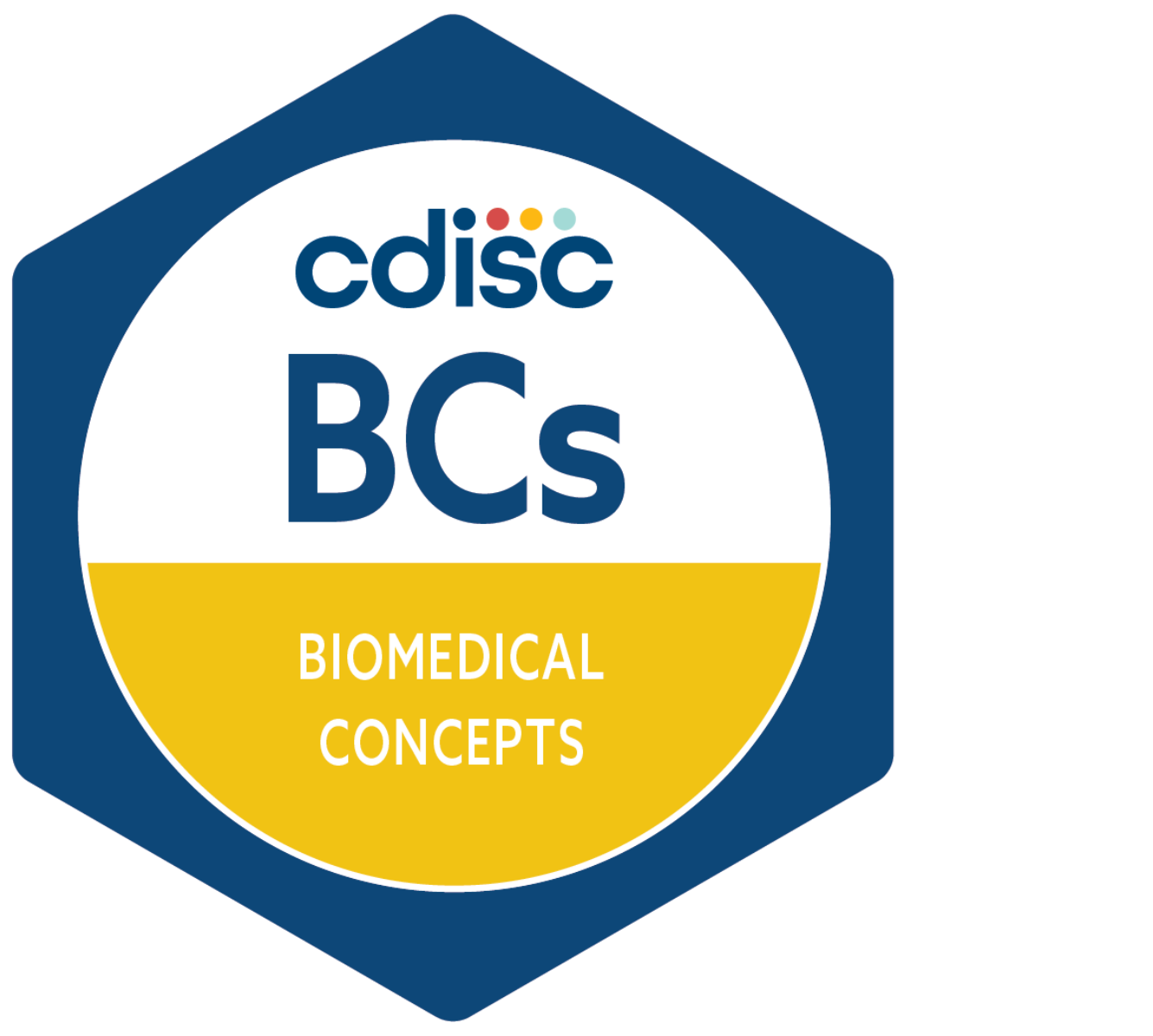 CDISC kicked off the Conceptual and Operational Standards Metadata Services (COSMoS) project in 2022, taking a pragmatic, iterative approach to creating biomedical concepts and representing them in the Foundational Standards as dataset specializations with Value Level Metadata definitions. Biomedical Concepts fill gaps in the current standards by adding semantics, variable relationships, and the detailed metadata needed to generate CRFs or Define-XML.
CDISC kicked off the Conceptual and Operational Standards Metadata Services (COSMoS) project in 2022, taking a pragmatic, iterative approach to creating biomedical concepts and representing them in the Foundational Standards as dataset specializations with Value Level Metadata definitions. Biomedical Concepts fill gaps in the current standards by adding semantics, variable relationships, and the detailed metadata needed to generate CRFs or Define-XML.
CDISC Biomedical Concepts (BCs) include a two-layered approach.
- Conceptual/abstract layer that provides standards-agnostic, unambiguous semantic definition largely based on NCIt concepts.
An implementation layer consisting of SDTM Dataset Specializations provides value level definition that facilitates metadata-driven automation.
The data model is flexible and can accommodate other standards (e.g., HL7 FHIR, etc.).
Key Objectives
- Reduce variability in standards implementations.
- Increase metadata-driven automation.
- Reduce barriers to operational implementation.
Highlights and Current Status
- BCs now available via CDISC Library API as JSON output.
- CDISC developing BCs for Digital Data Flow (DDF) study design/build activities.
- CDISC supporting development of BCs for Therapeutic Area User Guides.
- Oncology TA authoring BCs using CDISC framework, making TAUG Disease Response Criterion standards and associated Codetable Mapping Files available as machine-readable metadata.
- CDISC collaborating with early adopters to migrate BCs from external sources.
- CDISC expanding API search capability for BCs.
Benefits to the CDISC Community
- Global Standards Teams
- Reduces variability in standards implementation due to preconfigured value level metadata.
- Promotes reuse and improves adherence to standards.
- Fills gaps in the CDISC Foundational Standards, including explicit relationships and improved semantic definition.
- EDC/CRF Designers
- Reduces time spent configuring the standards for data collection.
- Promotes consistency in data collection and transformation.
- Opens avenues for automation around EDC build.
- Data Managers
- Reduces time spent interpreting the clinical protocol (e.g., BCs linked to a Schedule of Activities).
- Promotes consistent protocol design and data collection.
- Enables improved study specifications for vendors.
- Statistical Programmers
- Facilitates end-to-end standards with improved data flow transparency.
- Promotes smart/efficient programming code which help facilitate automation.
- Provides building blocks for Define-XML through preconfigured value level data.
- Promotes standardized reporting and reuse.
- Academia
- Promotes reuse and improved adherence to standards.
- Offers a more granular level of data standards which includes value level data.
- Fills gaps in the CDISC Foundational Standards, including explicit relationships and improved semantic definition.
Please refer to CDISC GitHub repository for BC data models and documentation.
- Latest CDISC Biomedical Concepts (Excel spreadsheet)
- Latest SDTM Dataset Specializations (Excel spreadsheet)
- Draft CRF Specializations (Excel spreadsheet)
The BC browser enables users to quickly and easily search, filter and find the latest BCs and SDTM Dataset Specializations in the CDISC Library.
Click Here to Access the BC Browser
Biomedical Concepts Browser Training Video